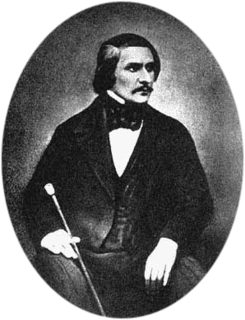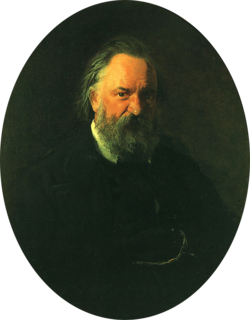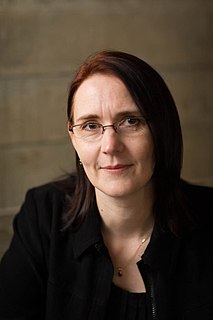A Quote by Nikolai Gogol
Man is such a wondrous being that it is never possible to count up all his merits at once. The more you study him, the more new particulars appear, and their description would be endless.
Related Quotes
Every man who has lived for fifty years has buried a whole world or even two; he has grown used to its disappearance and accustomed to the new scenery of another act: but suddenly the names and faces of a time long dead appear more and more often on his way, calling up series of shades and pictures kept somewhere, "just in case," in the endless catacombs of the memory, making him smile or sigh, and sometimes almost weep.
Once again she would arrive at a foreign place. Once again be the newcomer, an outsider, the one who did not belong. She knew from experience that she would quickly have to ingratiate herself with her new masters to avoid being rejected or, in more dire cases, punished. Then there would be the phase where she would have to sharpen her senses in order to see and hear as acutely as possible so that she could assimilate quickly all the new customs and the words most frequently used by the group she was to become a part of--so that finally, she would be judged on her own merits.
There is no learned man but will confess be hath much profited by reading controversies,--his senses awakened, his judgment sharpened, and the truth which he holds firmly established. If then it be profitable for him to read, why should it not at least be tolerable and free for his adversary to write? In logic they teach that contraries laid together, more evidently appear; it follows then, that all controversy being permitted, falsehood will appear more false, and truth the more true; which must needs conduce much to the general confirmation of an implicit truth.
If a man were only to deal in the world for a day, and should never have occasion to converse more with mankind, never more need their good opinion or good word, it were then no great matter (speaking as to the concernments of this world), if a man spent his reputation all at once, and ventured it at one throw; but if he be to continue in the world, and would have the advantage of conversation while he is in it, let him make use of truth and sincerity in all his words and actions; for nothing but this will last and hold out to the end.
I know no study which is so unutterably saddening as that of the evolution of humanity, as it is set forth in the annals of history. Out of the darkness of prehistoric ages man emerges with the marks of his lowly origin strong upon him. He is a brute, only more intelligent than the other brutes, a blind prey to impulses, which as often as not led him to destruction; a victim to endless illusions, which make his mental existence a terror and a burden, and fill his physical life with barren toil and battle.
Ah!" I cried, springing up. "But no! no! My uncle shall never know it. He would insist upon doing it too. He would want to know all about it. Ropes could not hold him, such a determined geologist as he is! He would start, he would, in spite of everything and everybody, and he would take me with him, and we should never get back. No, never! never!" My over-excitement was beyond all description.
I think people are always looking for gurus. It's the easiest thing in the world to become a guru. It's quite terrifying. I once saw something fascinating here in New York. It must have been in the early seventies--guru time. A man used to go and sit in Central Park, wearing elaborate golden robes. He never once opened his mouth, he just sat. He'd appear at lunchtime. People appeared from everywhere, because he was obviously a holy man, and this went on for months. They just sat around him in reverent silence. Eventually he got fed up with it and left. Yes. It's as easy as that.
Say of him what you please, but I know my child's failings. I do not love him because he is good, but because he is my little child. How should you know how dear he can be when you try to weigh his merits against his faults? When I must punish him he becomes all the more a part of my being. When I cause his tears to come my heart weeps with him. I alone have a right to blame and punish, for he only may chastise who loves.
If any man would come after me, let him deny himself." The disciple must say to himself the same words Peter said of Christ when he denied him: "I know not this man." Self-denial is never just a series of isolated acts of mortification or asceticism. It is not suicide, for there is an element of self-will even in that. To deny oneself is to be aware only of Christ and no more of self, to see only him who goes before and no more the road which is too hard for us. Once more, all that self denial can say is: "He leads the way, keep close to him.
Never did he once consider directing his hatred toward the hunters. Such an emotion would have destroyed him ... His subconscious knew what his min did not guess-that hating them would have consumed him, burned him up like a piece of soft coal, leaving only flakes of ash and a question mark of smoke.







































